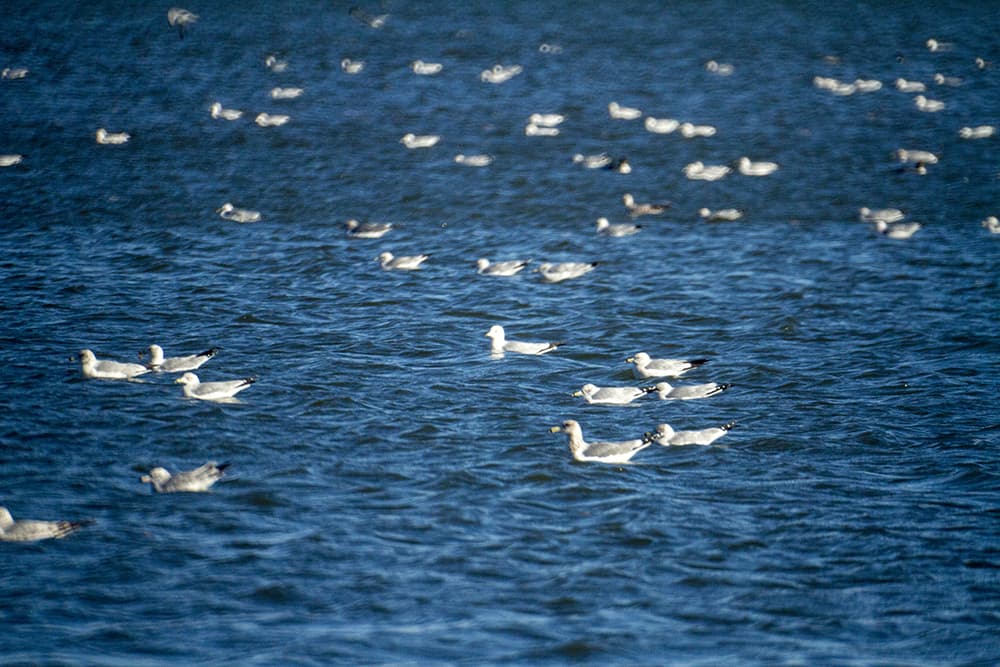Denverite reader Erica asked, "Why do parking lots in landlocked Denver seem to always have seagulls flying around?"
Well, Erica, it's your fault. But it's also mine. Really, modern humans' collective fault.
First things first, there's no one single "seagull" species, said Zach Hutchinson, a community naturalist for Audubon Rockies, the regional office of the National Audubon Society. It's a colloquial term for any number of species of waterbirds with webbed feet who tend to look alike.
What you see most often in Denver are ring-billed gulls. We also have Franklin's gulls and herring gulls, as well as "vagrants" who stray from their typical nesting and migrating areas.
But Denverite, I thought gulls were, like, "surf's up bro" kind of birds?
They are! The same type of gulls that chill here can and do vibe at the beach, too. But Colorado's gulls mostly live their lives inland and will likely never see the coast, Hutchinson said. Gulls breed and nest in Denver and other parts of the state. They also winter here after flying south from Wyoming, Montana, Idaho and Canada.
"If there's an opportunity where food and safety allow for a bird to winter, that uses less energy than, say, flying all the way to the Texas coast, they'll take it," Hutchinson said.
Denver's gulls like the Front Range's lakes and reservoirs. (It's OK if you're imagining the cover of "Reservoir Dogs," but with white reservoir birds wearing svelt black suits.)
So, yes, gulls love the sea. It's where they came from, said Garth Spellman, an ornithology expert with the Denver Museum of Nature and Science. But they also love Colorado and have been here for tens of millions of years, Spellman said.
"They belong to an order of birds that was all associated with water eventually they probably evolved and moved inland," Spellman said. (And again, no pressure, but it is also OK if you're imagining a Stonecutter-like underground order of gulls pulling the strings of society while munching on your boardwalk fries.)
But Denverite, why do gulls hang out in parking lots and poop on my car?
Spellman calls gulls "opportunistic omnivores." Parking lots are gathering places for humans. And where we are, our food is too.
"They've found a way to basically use humans to better their chances of survival -- or at least their perceived chances of survival," said Hutchinson with the Audubon Society. "Humans have increased the areas in which gulls can successfully winter through agricultural development and open-air dumps."
Parking lots not only offer remnants from a King Soopers trip or a Taco Bell binge. They also offer an expanse that allows gulls to easily spot predators, Hutchinson said. They value those wide-open spaces. (Might just me, but by the way, it's OK if you're imagining gulls dressed like the Dixie Chicks running through fields, free from society's expectations.)












